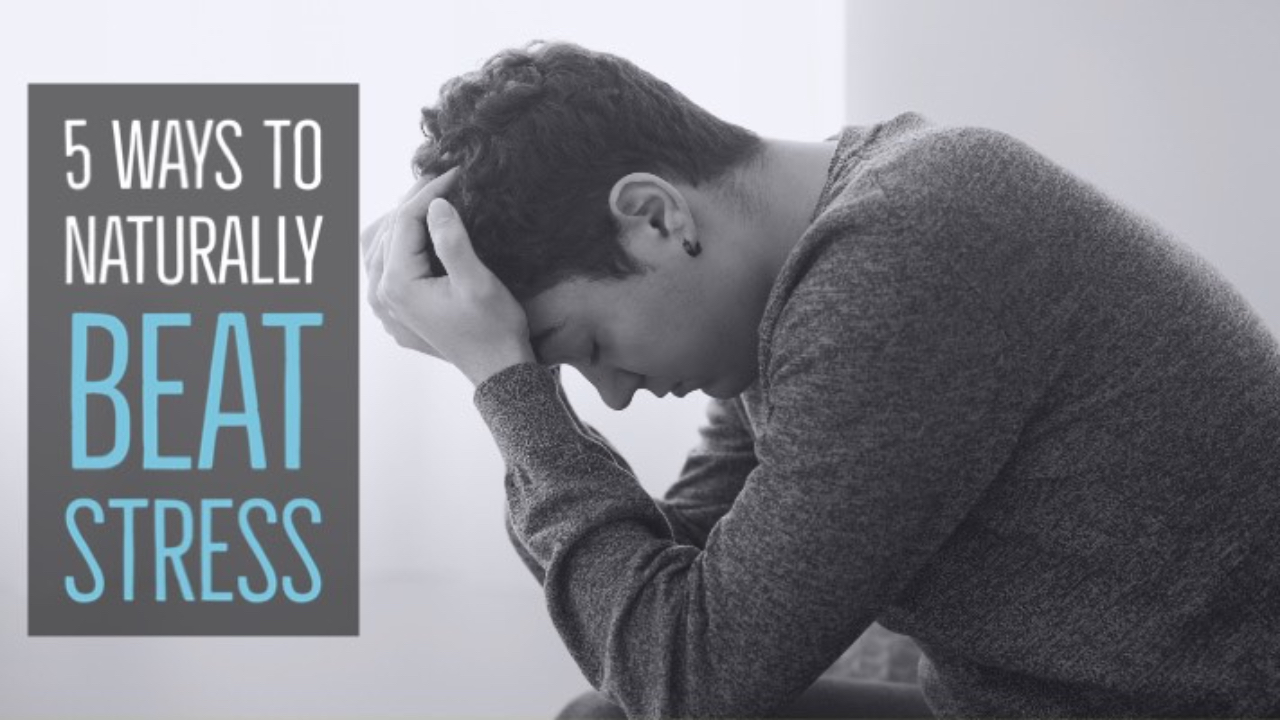
Naturally Beat Stress: 5 Ways to Boost Your Mood and Reduce Anxiety
Stress is a common experience in our daily lives that can negatively impact our physical and mental health. While there are many ways to reduce stress, natural methods are becoming increasingly popular. In this article, we will explore some natural ways to reduce stress and their scientific benefits.
Exercise Regularly
One of the most effective natural ways to reduce stress is exercise. Regular exercise has been shown to improve mood, reduce anxiety and depression, and promote relaxation. Physical activity also releases endorphins, which are natural mood boosters that can help to relieve stress. Exercise can be as simple as a brisk walk or a yoga class, but any activity that gets the body moving can be helpful.
Practice Relaxation Techniques
Another natural method to reduce stress is to practice relaxation techniques. Deep breathing, meditation, and yoga are all effective ways to promote relaxation and reduce anxiety. These techniques work by slowing down the heart rate and breathing, and by redirecting the focus away from stressors. Incorporating relaxation techniques into your daily routine can help to manage stress and improve overall well-being.
Eat a Healthy Diet
Eating a healthy diet is another natural way to reduce stress. Consuming foods that are high in nutrients such as vitamins, minerals, and antioxidants can help to boost the immune system and reduce inflammation, which can be beneficial for reducing stress. Foods such as fruits, vegetables, whole grains, lean proteins, and healthy fats can all help to improve overall health and reduce stress.
Connect with Others
Humans are social creatures and connecting with others can be a natural way to reduce stress. Talking to friends, family members, or seeking support from a therapist can help to reduce feelings of isolation and provide a sense of community. Research has shown that social support can improve mental health, boost immunity, and reduce stress levels.
Get Enough Sleep
Sleep is an essential component of overall health and a natural way to reduce stress. Getting enough sleep can improve mood, increase energy levels, and reduce the risk of developing mental health disorders. It is recommended that adults get between 7-9 hours of sleep per night to ensure adequate rest.
Reducing stress is essential for maintaining good physical and mental health. Incorporating natural methods such as exercise, relaxation techniques, a healthy diet, social support, and adequate sleep can help to reduce stress and promote overall well-being. While these methods may not work for everyone, they are a great starting point for those looking to manage stress naturally.
References:
- Cohen S, Doyle WJ, Skoner DP, Rabin BS, Gwaltney JM Jr. Social ties and susceptibility to the common cold. JAMA. 1997;277(24):1940-1944. doi:10.1001/jama.1997.03540480040036
- Cohen S. Social relationships and health. Am Psychol. 2004 Nov;59(8):676-84. doi: 10.1037/0003-066X.59.8.676. PMID: 15554822.
- Gibson EL. Emotional influences on food choice: sensory, physiological and psychological pathways. Physiol Behav. 2006 Aug 30;89(2-3):47-53. doi: 10.1016/j.physbeh.2006.01.024. Epub 2006 Feb 21. PMID: 16517068.
- Harvard Health Publishing. Understanding the stress response. https://www.health.harvard.edu/staying-healthy/understanding-the-stress-response. Accessed on January 29, 2023.
- Irwin MR. Why sleep isimportant for health: a psychoneuroimmunology perspective. Annu Rev Psychol. 2015 Jan 3;66:143-72. doi: 10.1146/annurev-psych-010213-115205. PMID: 25251491.
- National Center for Complementary and Integrative Health. 5 Things To Know About Stress. https://www.nccih.nih.gov/health/tips/things-to-know-about-stress. Accessed on January 29, 2023.
- Pascoe MC, Thompson DR, Ski CF. Yoga, mindfulness-based stress reduction and stress-related physiological measures: A meta-analysis. Psychoneuroendocrinology. 2017 Dec;86:152-168. doi: 10.1016/j.psyneuen.2017.08.008. Epub 2017 Aug 10. PMID: 28841472.
- Salmon P. Effects of physical exercise on anxiety, depression, and sensitivity to stress: a unifying theory. Clin Psychol Rev. 2001 Jul;21(1):33-61. doi: 10.1016/s0272-7358(99)00032-x. PMID: 11148895.
- Schuch FB, Vancampfort D, Firth J, Rosenbaum S, Ward PB, Silva ES, Hallgren M, Ponce De Leon A, Dunn AL, Deslandes AC, Fleck MP, Carvalho AF, Stubbs B. Physical activity and incident depression: a meta-analysis of prospective cohort studies. Am J Psychiatry. 2018 Jun 1;175(6):631-648. doi: 10.1176/appi.ajp.2018.17111194. Epub 2018 Apr 3. PMID: 29609650.
- Stanner SA, Hughes J, Kelly CN, Buttriss J. A review of the epidemiological evidence for the 'antioxidant hypothesis'. Public Health Nutr. 2004 Oct;7(7):407-22. doi: 10.1079/phn2003535. PMID: 15482614.
- Tang YY, Hölzel BK, Posner MI. The neuroscience of mindfulness meditation. Nat Rev Neurosci. 2015 Apr;16(4):213-25. doi: 10.1038/nrn3916. PMID: 25783612.
- National Sleep Foundation. How Much Sleep Do We Really Need? https://www.sleepfoundation.org/how-sleep-works/how-much-sleep-do-we-really-need. Accessed on January 29, 2023.




